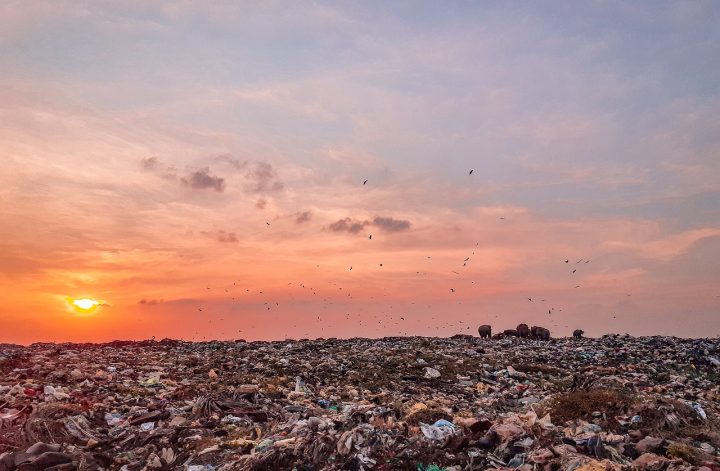Land and Soil Pollution in Pakistan:
Land/soil pollution in Pakistan is very prevalent. The Food and Agricultural Organization (FAO) has stated numerous time about the intensity and quality of land and soil in Pakistan has only continued to worsen. The Soil has a high concentration of alluvium, pesticides, chemical fertilizers and non-organic matter that cause not just land pollution but also further aggravate other habitats and ecosystem communities through water pollution/ runoff.
The number one factor that contributes to extensive land pollution that we see all around our rural and urban areas is due to human activities. This has even lead to a decline in soil quality and as a result, on the crop yield. This is a bad news for a country that largely depends on agriculture.
Causes and Effects of Soil/Land Pollution in Pakistan:
- Human activities that result in natural and other types of waste from humans and animals. Such as livestock waste dumping in open fields where they not only cause bad odor, have the possibility to leak into waterways nearby but also contribute to land pollution by directly degrading the quality of the soil.
- The lack of removal of toxic chemicals, heavy metals or substances from waste water and waste in general leads to underground leaching not waterways, aquifers, also affects soil fertility and its ability to retain nutrients.
Check out: Environmental Impact of Heavy Metal Pollution in Pakistan - From an economical standpoint, all the damage done in the form of land pollution and soil pollution from industrial wastewater that has chemicals and toxic pollutants like lead, arsenic etc. has severely ravaged the crop yield of our soils. The ability of the soil to provide healthy food has been impacted due to irrigation with waste water and growing on soil that already is contaminated.
- Additionally, all agricultural soils are given a break for a season so that they can recuperate and replenish their nutrients. However, due to declining crop yields, farmers in Pakistan try to compensate for it by growing all year around which burdens the soil and speeds up the degradation process even further. They fail to recognize that the root cause is the contamination of soil from waste water or lack of nutrients that can sometimes result from over use of fertilizers and chemical substance application.
- Soil contamination from disposal of municipal waste, improper sewage system, landfill sites expansion, and general littering and rubbish disposal on the streets, drains, roads, highways and sidewalks, are the biggest factor in land pollution. The people are careless and because on part of the government, there are no public bins or recycling bins system in place for the public, this problem is ever increasing.
- Lack of incineration units that could help reduce the burden or need for the landfill sites is a primary factor. However, as developed countries are now focusing on transitioning onto more advanced and eco-friendly alternatives yet, we as a developing nation don’t even have the care to install incineration units. As a result, our landfill sites are numerous and run over with more waste than what they were built to handle.
- Health problems and many skin problems like cancer, parasitic diseases are also spreading from unclean places marked by land pollution. The food we eat is very likely to have been grown in contaminated soil that is watered by industrial sewage water in rural areas. This problem is common even in the cities. There is likely to be no exception except for food grown in organic gardens which are of course not accessible to everyone due to numerous other social and privilege factors. Therefore, everything we eat, the air we breathe and the water we drink are likely to be polluted more than the WHO standards call, for the good part of majority.
Solutions/Suggestions for Land/Soil Pollution:
New reforms. seriousness of the government is really needed to tackle this issue from the root. People as a nation needs to be made aware of the concept of reduce, reuse and recycle. As such only then the reforms or policies that the government will potentially enact can work.
Completely ban single use plastics in favor of tote bags or cloth bags. Use and promote biodegradable alternatives, research and studies need to be funded to develop our own biodegradable substance that is easily accessible for mass use such as wheat or rice husks. People should use biodegradable products that can also solve the problem of landfill sites being over run with plastics and substances that take a long time to be degraded.
Related: How Pakistan Is Handling Plastic Waste and Pollution?
Reduce the use of chemical based fertilizers, opt for biodynamic, sustainable and better agricultural practices that suit our land conditions and resources. Such as mulching, green manure, cover cropping, crop rotation, livestock waste fertilizer etc.
Lastly, reusing a large chunk of our resources during harvesting and other aspects of our lives can greatly improve the environment all round.
Conclusion:
Scientists have warned that millions of people could die by 2050 due to food shortages caused by land pollution. It is estimated that owing to the decline in land fertility, Pakistan is likely to suffer a loss of 3% annually in national production. Therefore, immediate action is necessary to prevent this from happening.
You may also like: Land/Soil pollution – Causes, Effects, and Control
Check out: Impact of Heavy Metal Pollution on the Environment
I hope you all liked this post! Please comment below if you have any suggestions, comments, or feedback! We at #envpk love hearing from our readers! Thanks!




